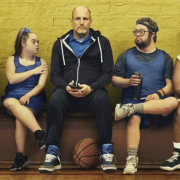Is the Sexual Revolution Built on Lies? Secular Feminist says ‘Yes’.
By: Akos Balogh
Laughter roared through the back of the truck. Half my army platoon and I were riding in a Unimog on our way to a training exercise. And the conversation turned (as it often did) to sexual matters and sexual ‘conquests’.
A fellow soldier asked me about my experience in this area.
“I don’t believe in sex before marriage”, I said.
The (young) men were gobsmacked: what 18-year-old male doesn’t have sex?? They were hard pressed to contain their laughter as they shook their heads.
Such sexualised behaviour is the norm on this side of the sexual revolution (especially in a testosterone-heavy environment like the army). Casual sex, pornography, and all that goes with it (strip clubs etc.) are an accepted part of modern life. On this side of the revolution, we’re told, you should enjoy sex without restraint, without stigma. As if it’s just another bodily urge that needs satisfying.
And yet, there’s growing unease around this ‘liberated’ view of sex in some quarters of our secular world.
Questions are being raised about the impact of the sexual revolution on girls and women (as well as boys and men). The #metoo movement has spotlighted the horrors of sexual abuse. And deeper concerns are now being raised about the sexual revolution itself—concerns that resonate with the Bible’s view of sex.
And British secular feminist Louise Perry is leading the charge.
In a recent essay on the Common Sense substack (hosted by former New York Times editor Bari Weiss), entitled ‘I’m 30. The sexual revolution shackled my generation‘, she writes:
“I used to believe the liberal narrative on the sexual revolution.
As a younger woman, I held the same opinions as most other millennial urban graduates in the West. I conformed to the beliefs of my class. Of course freedom is the goal, I thought. What women need is the freedom to behave as men have always behaved, enjoying all the pleasures of casual sex, porn, BDSM, and indeed any other sexual delight that the human mind can dream up. As long as everyone is consenting, what’s the problem?
I no longer believe any of this.
I’m not a religious conservative. I’m a feminist, and I’ve spent my entire professional life working on the issue of male violence against women—first in a rape crisis center, and later as a journalist and a media relations director for a legal campaign against sexual violence.
It’s precisely because I’m a feminist that I’ve changed my mind on sexual liberalism.” [1]
That’s not something you hear every day. She’s the first secular feminist I’ve heard who’s put it so bluntly.
But I’m guessing she’s not the only feminist changing her views about the sexual revolution. And so, it’s worth exploring her argument. Here it is:
1) The sexual revolution is built on a lie about men and women
Perry writes:
“[The sexual revolution is] an ideology premised on the false belief that the physical and psychological differences between men and women are trivial, and that any restrictions placed on sexual behavior must therefore have been motivated by malice, stupidity or ignorance.
The problem is the differences aren’t trivial. Sexual asymmetry is profoundly important: One half of the population is smaller and weaker than the other half, making it much more vulnerable to violence. This half of the population also carries all of the risks associated with pregnancy.
It is also much less interested in enjoying all of the delights now on offer in the post-sexual revolution era.”
There is a big difference between men and women (on average). Women carry far more consequences of so-called ‘sexual liberation’ than men.
2) The sexual revolution has not freed women but reduced them to objects of men’s pleasure.
On this issue, Perry doesn’t hold back:
“Remove the progressive goggles, and the history of the last 60 years looks different.
The sexual revolution isn’t only a story of women freed from the burdens of chastity and motherhood. It is also a story about the triumph of the playboy. The new sexual culture isn’t so much about the liberation of women, as so many feminists would have us believe, but the adaptation of women to the expectations of a familiar character: Don Juan, Casanova, or, more recently, Hugh Hefner.”
The pornification of culture has led to pornified expectations of women. What a surprise.
3) We need to bring back what the revolution has torn down
Most revolutions in human history have disastrous unintended consequences. Think of the French or Russian revolutions. And sadly, the sexual revolution is no different.
And according to Perry, there are important goods from pre-revolutionary times that need to be brought back:
“We need to re-erect the social guard rails that have been torn down.
To do that, we have to start by stating the obvious: Sex must be taken seriously. Men and women are different. Some desires are bad. Consent is not enough. Violence is not love. Loveless sex is not empowering. People are not products. Marriage is good.”
How refreshing it is to hear this feminist’s voice!
A surprising alignment with the Bible’s concerns
Perry is no Christian, as she points out.
But her concerns are surprisingly aligned with the Bible’s sexual ethic. Sex must be taken seriously. It’s a good gift from our Maker, to be enjoyed only between a husband and a wife (Gen 2, 1 Cor 7). When used according to God’s design, sex is incredibly good (which is why those in monogamous marriages – especially religious people – report a more satisfying sex life than those in the hookup culture).
And while life was by no means perfect pre-sexual revolution (there were other issues of misogyny, for example), it’s hard to ignore the devastating consequences for girls and women of a pornified culture.
(Of course, not everything she says aligns with the Bible (e.g. she is ok with pre-marital sex in some circumstances), and more could be said. But that’s the project of her new book, The Case Against The Sexual Revolution).
God’s Reality breaks through eventually
But what I found most interesting was that God’s reality – God’s design – is breaking through in her analysis. You can only suppress reality for so long before you start reaping the consequences, especially in sex.
Just ask this thoughtful secular feminist.
Article supplied with thanks to Akos Balogh.
About the Author: Akos is the Executive Director of the Gospel Coalition Australia. He has a Masters in Theology and is a trained Combat and Aerospace Engineer.
Feature image: Photo by Michael Mazzone on Unsplash









